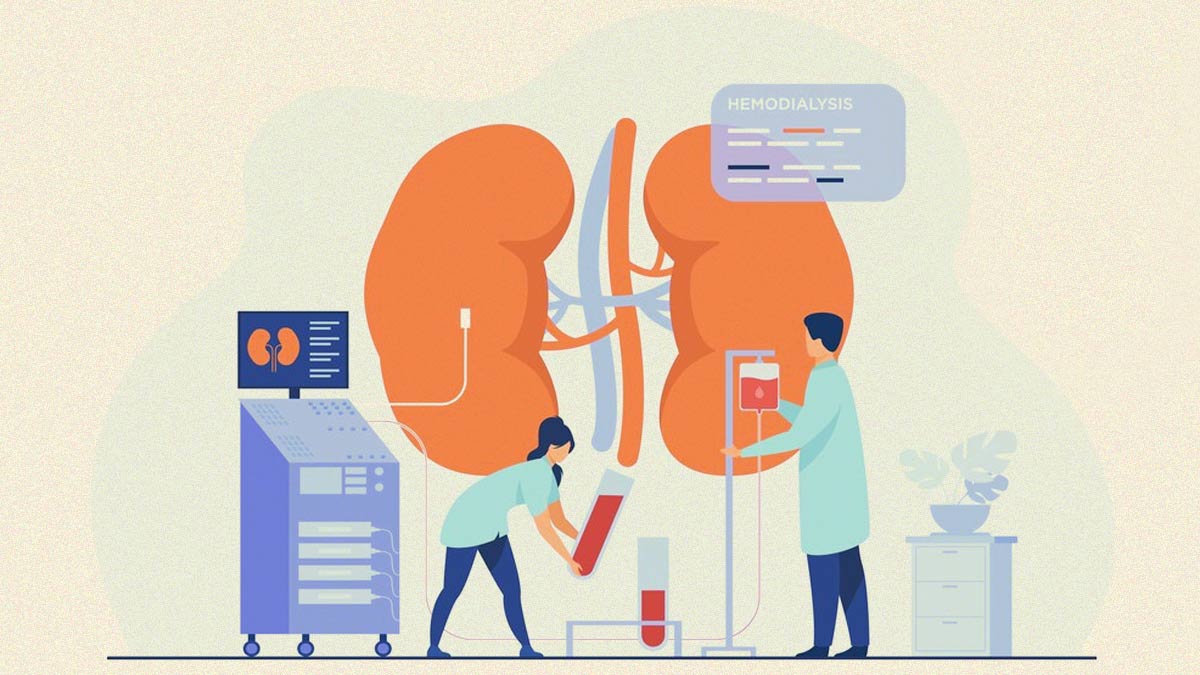
Dialysis is a life-saving treatment for patients suffering from renal failure, but it is not without risks. While dialysis aids in the management of kidney function, it places a strain on both the body and the mind. Maintaining mental and physical health throughout this process is essential for improving quality of life and long-term health outcomes. The experience of dialysis can be exhausting and challenging, both physically and mentally, making it essential to support patients holistically, addressing both their physical and emotional well-being. We spoke to our expert Dr Sakshi Jain, Consulting Nephrologist, NephroPlus, who explained the physical and mental impact of dialysis and how to manage it.
Table of Content:-
Understanding the Physical Demands of Dialysis

“Dialysis mimics the actions of healthy kidneys by eliminating excess fluids, toxins, and waste from the body. While this is necessary for survival in people with end-stage kidney disease, it can be physically demanding. The two most frequent types of dialysis, haemodialysis and peritoneal dialysis, provide unique physical problems,” explained Dr Jain.
- Haemodialysis: It is a procedure that includes filtering blood through a dialysis machine and is often performed in a clinic or hospital setting. Following treatment, patients may develop weariness, muscle cramps, low blood pressure, and nausea or dizziness.
- Peritoneal dialysis: It is a procedure performed at home and entails placing a catheter into the abdomen to allow cleansing fluid to remove waste from the body. While it provides flexibility, there is a risk of infection.
Effects of Dialysis on Emotional Well-Being

"Dialysis has major psychological and emotional costs in addition to its physical ones. Living on dialysis frequently means needing to go to the doctor, sacrificing one's independence, and making lifestyle adjustments," said Dr Jain.
According to 2024 research, it was found that Chronic Kidney Disease (CKD) patients have a high incidence of depression, estimated at up to 69%, which significantly impacts their mental health and overall prognosis. Depression is also linked to an increased risk of cardiovascular disease in these patients, highlighting the need for effective mental health interventions.
A 2020 study found that the prevalence of depression in patients with End-Stage Renal Disease (ESRD) is significantly higher than in the general population. Likewise, a meta-analysis of 249 studies revealed that 22.8% of patients undergoing dialysis experienced depression, compared to those in the placebo group.
To support dialysis patients holistically, it is imperative to address both mental and physical health:
Techniques for Maintaining Physical and Emotional Health
Dr Jain listed some effective ways to maintain physical and emotional health in dialysis patients as follows:
Exercise Frequently

“Deep breathing exercises, such as yoga, walking, or swimming, can help increase energy, strengthen muscles, and ease some of the physical side effects of dialysis. Exercise also helps with blood pressure regulation and weight management, which are vital for kidney health,” said Dr Jain.
Take Part in Fun Activities
Hobbies, social events, and artistic endeavours can all contribute to preserving a cheerful and normal feeling of being. Engaging in happy activities helps encourage a positive outlook and divert attention from the difficulties of dialysis.
Also Read: Why Regular Screenings Are A Must For Patients Undergoing Dialysis
Maintain a Kidney-Friendly Diet

Maintaining an electrolyte and fluid balance requires eating a balanced, kidney-friendly diet.” Dialysis patients should collaborate closely with a nutritionist to make sure they are getting the proper amount of nutrients in their diets, avoiding excess sodium and phosphorus, and regulating their fluid intake while staying hydrated,” added Dr Jain.
Seek Professional Assistance
Emotional support can be obtained by consulting a mental health professional, such as a psychologist or counsellor. Patients who are having dialysis may find it difficult to manage their negative thoughts and emotions. Cognitive-Behavioral Therapy (CBT) is beneficial in this regard.
Being a part of a Support Group
Developing relationships with other dialysis patients can be consoling and lessen feelings of loneliness. Support groups provide a forum for the exchange of knowledge, advice, and coping techniques.
Bottomline
Dr Jain concluded, “Managing both physical and mental issues is a complex aspect of living with dialysis. However, dialysis patients can keep their independence, find balance, and lead satisfying lives despite challenges by combining exercise, healthy eating, mental support, and thoughtful self-care. Making total health a priority means thriving throughout dialysis, not just getting by.”
[Disclaimer: This article contains information provided by an expert and is for informational purposes only. Hence, we advise you to consult your own professional if you are dealing with any health issues to avoid complications.]
Also watch this video
How we keep this article up to date:
We work with experts and keep a close eye on the latest in health and wellness. Whenever there is a new research or helpful information, we update our articles with accurate and useful advice.
Current Version